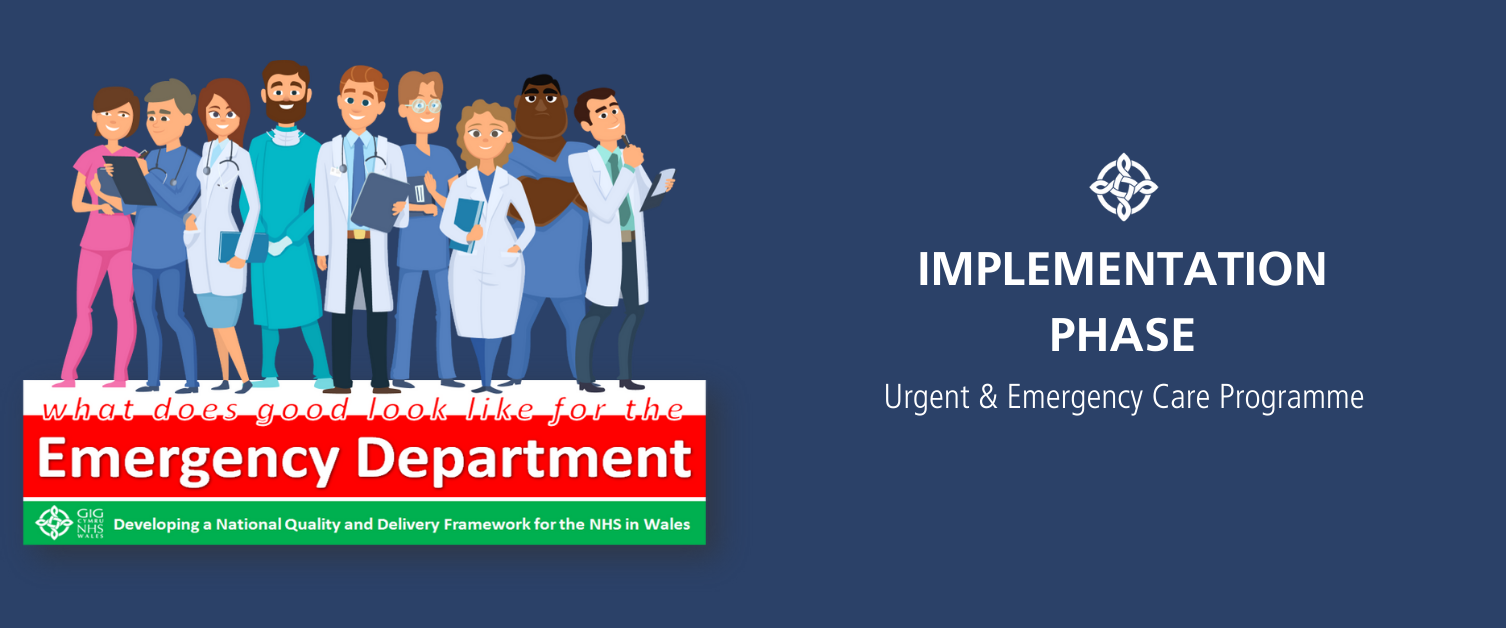Implementation Phase

The programme has entered the implementation phase: phase two, aimed at working with individual Emergency Departments (EDs) to implement the Quality and Delivery Framework. In simple terms, phase two is about putting the National Quality and Delivery Framework into practice in an existing Emergency Department (ED).
The programme team are working closely with Health Boards to tailor the framework to reflect local services and structures, providing a context dependent description or specification for each ED. This includes aligning service improvement and development within the department with resource and performance expectations of all stakeholders. The timing and delivery of key milestones will be dependent upon the organisation’s expectations and availability of local support, enabling resources and expertise, however phase two will extend over approximately 12 months from when the local teams are recruited.
Welsh Government are supporting the implementation phase with additional resources to free up time and expertise to form a local EDQDF team within participating health boards. Organisations will also be expected to support development from within corporate support services such as finance, human resources and Information.
During this implementation phase the programme team continue to develop and refine the principle products under CAREMORE®, based predominantly on the work undertaken in two parallel streams of work:
Pathway Improvement Projects (PIPs) focus on the operational arrangements to deliver against each of the 20 care standards. This work will be led by the programme team and local project teams:
- Collating and creating clinical and managerial protocols and procedures
- Comprehensive core dataset and understanding of activity and flow
- Resources mapped to the model and forecast against activities
- Enhancing measurement and identify opportunities for digitalisation
National Enablers for Service Improvements (NESIs) focus on ‘Once for Wales’ collaborations and wider organisational infrastructure. Much of this work sits outside the responsibility of individual ED teams and departments, who will participate in the work led by relevant partner organisations with the necessary expertise:
- ED Patient Experience
- ED Staff Experience
- ED Pioneering KPIs
- ED Benchmarking
- ED Workforce Solutions
- ED Value Based Procurement
- ED Incident & Complaint Reporting
- ED Future Generations
- ED Clinical Quality & Outcomes
- ED Digitalisation
At the end of the implementation phase, there is a more detailed version of the framework tailored to local structures with a clear understanding of the improvement and development requirements for that specific ED's in meeting the requirements of the Framework. The learning from the implementation phase includes key considerations for the ongoing framework maintenance, learning and development alongside its continued rollout from both a national and local perspective. The implementation phase concludes with a handover report detailing the process for full adoption and management of both the framework itself and performance of the service under the framework.